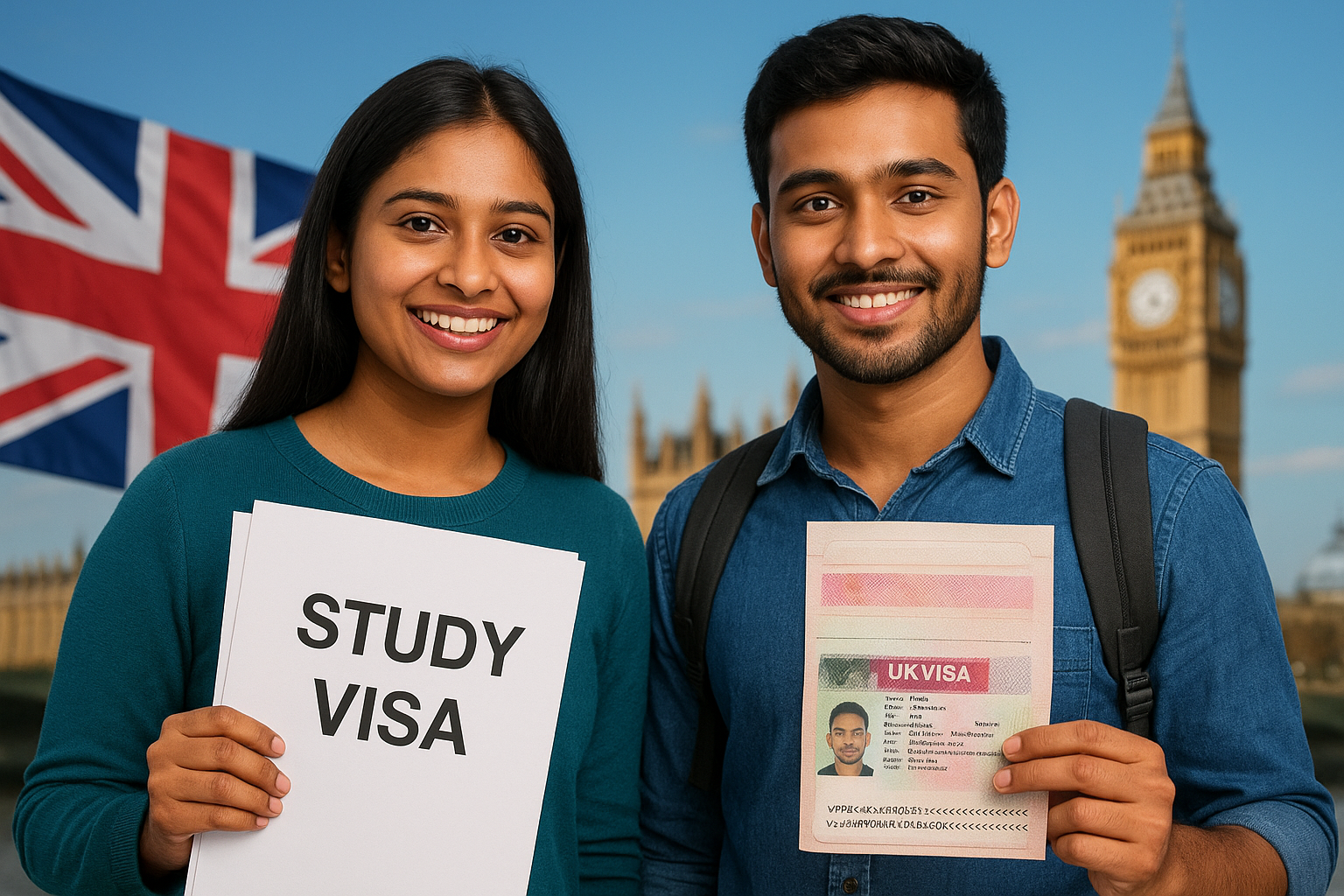Studying abroad is a life-changing decision, and the United Kingdom (UK) remains one of the top destinations for students worldwide. Known for its world-class universities, rich history, and diverse culture, the UK offers international students the perfect blend of academic excellence and personal growth.
In this comprehensive guide, we will explore everything you need to know about studying in the UK — from reasons to choose the UK, top universities, admission requirements, costs, scholarships, student life, and career opportunities.
Why Study in the UK?
The UK is home to some of the oldest and most prestigious universities in the world, attracting thousands of students each year. Here are some key reasons why studying in the UK is a great choice:
1. World-Class Education
UK universities consistently rank among the best globally. Institutions such as the University of Oxford, University of Cambridge, and Imperial College London are renowned for their high academic standards, cutting-edge research, and innovative teaching methods.
2. Wide Range of Courses
Whether you want to study engineering, medicine, business, law, or creative arts, UK universities offer thousands of programs to suit every interest. The flexibility of the UK education system allows students to combine courses and specialize according to their career goals.
3. Shorter Course Duration
One major advantage of studying in the UK is the shorter duration of programs compared to other countries. Undergraduate degrees typically take three years, while master’s degrees are often completed in just one year. This not only saves time but also reduces tuition and living costs.
4. Multicultural Environment
The UK is a hub for international students, with over 600,000 foreign students enrolling every year. This diversity creates an inclusive environment where students from different backgrounds can learn, share experiences, and build global networks.
5. Work Opportunities
International students in the UK can work part-time during their studies and full-time during holidays. After graduation, the Graduate Route visa allows students to stay and work in the UK for up to two years (three years for doctoral graduates).
Top Universities in the UK
The UK is home to more than 150 higher education institutions, many of which are highly ranked globally. Here are some of the best:
- University of Oxford – The world’s oldest English-speaking university, famous for research and academic excellence.
- University of Cambridge – Known for its rich history, innovative teaching, and outstanding faculty.
- Imperial College London – Specializes in science, engineering, medicine, and business.
- London School of Economics and Political Science (LSE) – Globally recognized for social sciences and economics.
- University of Edinburgh – A leading institution in research and innovation.
- King’s College London – Offers a wide range of courses in humanities, sciences, and medicine.
Admission Requirements for International Students
Each university in the UK sets its own admission criteria, but here are some common requirements:
Undergraduate Programs
- High school certificate equivalent to A-levels.
- Proof of English proficiency (IELTS, TOEFL, or PTE Academic).
- Personal statement explaining your motivation to study in the UK.
- Letters of recommendation from teachers or mentors.
Postgraduate Programs
- Bachelor’s degree in a relevant field.
- English language test results (if not from an English-speaking country).
- Curriculum Vitae (CV) highlighting academic and work experience.
- Research proposal (for research-based programs like PhD).
Cost of Studying in the UK
Studying in the UK can be expensive, but the costs vary depending on the university, course, and location.
Tuition Fees
- Undergraduate degrees: £10,000 – £25,000 per year.
- Postgraduate degrees: £11,000 – £32,000 per year.
- Medical degrees: Up to £40,000 per year.
Living Expenses
The average cost of living for a student in the UK is around £10,000 – £15,000 per year. This includes accommodation, food, transport, and other personal expenses.
Scholarships and Financial Aid
Many UK universities and organizations offer scholarships to international students to help reduce financial burden. Some popular options include:
- Chevening Scholarships – Funded by the UK government, awarded to outstanding students worldwide.
- Commonwealth Scholarships – For students from Commonwealth countries.
- GREAT Scholarships – Offered by the British Council in partnership with UK universities.
- University-specific scholarships – Many institutions like Oxford, Cambridge, and Imperial College provide their own funding programs.
Student Life in the UK
Studying in the UK is not just about academics — it’s also about experiencing a new culture, meeting people from around the world, and building lifelong memories.
Cultural Diversity
With students from over 140 countries, the UK offers a vibrant multicultural atmosphere. You’ll get the chance to experience global cuisines, festivals, and traditions.
Extracurricular Activities
UK universities encourage students to participate in sports, arts, and cultural societies. From football and rowing to theater and music clubs, there is something for everyone.
Travel Opportunities
The UK’s excellent transport network makes it easy to explore famous cities like London, Manchester, and Edinburgh. Plus, Europe is just a short flight or train ride away, allowing you to travel during breaks.
Work and Career Opportunities
One of the biggest advantages of studying in the UK is the opportunity to build a successful career.
Part-Time Jobs
International students can work up to 20 hours per week during term time, which helps gain experience and manage living costs.
Graduate Route Visa
After completing your studies, you can apply for a Graduate Route visa, which allows you to stay in the UK for up to two years (three for PhD graduates) and work in any field.
Career Prospects
UK degrees are highly valued worldwide. Graduates often find excellent job opportunities in fields like finance, technology, healthcare, engineering, and creative industries.
Tips for International Students
- Plan early – Start preparing your application at least a year before your intended course start date.
- Budget wisely – Calculate your tuition fees and living expenses in advance.
- Improve your English skills – Strong communication will help in academics and social life.
- Stay updated with visa rules – The UK student visa process is straightforward, but requirements can change.
- Get involved – Join clubs, societies, and networking events to make friends and build connections.
Conclusion
Studying in the UK opens doors to world-class education, cultural diversity, and excellent career opportunities. While the cost of education may seem high, scholarships, part-time jobs, and shorter course durations make it more affordable than many realize.
If you’re planning to study abroad, the UK is an ideal choice for students who want to gain a globally recognized degree while enjoying a rich cultural experience. With proper planning, determination, and the right resources, your dream of studying in the UK can become a reality.
Read Also:






Leave A Comment